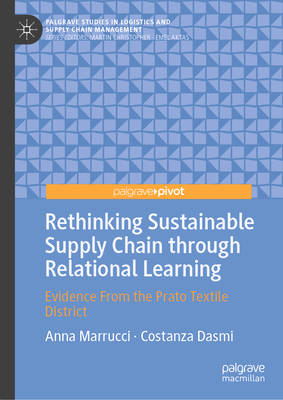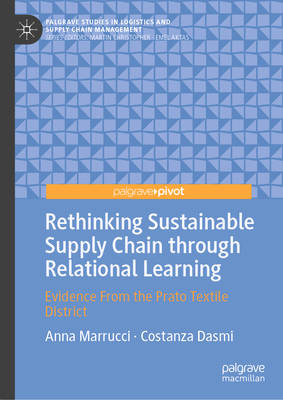
- Afhalen na 1 uur in een winkel met voorraad
- Gratis thuislevering in België vanaf € 30
- Ruim aanbod met 7 miljoen producten
- Afhalen na 1 uur in een winkel met voorraad
- Gratis thuislevering in België vanaf € 30
- Ruim aanbod met 7 miljoen producten
Zoeken
Rethinking Sustainable Supply Chain Through Relational Learning
Evidence from the Prato Textile District
Anna Marrucci, Costanza Dasmi
€ 42,95
+ 85 punten
Omschrijving
Existing literature on textile supply chains has highlighted the importance of adopting sustainable practices in their operational activities, identifying institutional pressures and digital transformation as the main drivers of sustainable change. However, supply chains should be studied as relational networks capable of involving a multitude of actors. Sustainable outcomes, therefore, depend on the collaborative efforts within a network of interdependent firms. This book conceptualizes the supply chain as a network of relationships, shifting the focus from the individual to the collective. Achieving sustainable changes in the textile industry becomes the responsibility of an entire supply chain, involving multinational corporations, manufacturers, suppliers, and subcontractors. To reconceptualize the supply chain as a relational network, this book adopts a theoretical approach rooted in relational sociology, which centers its analysis on social relationships rather than isolated individuals or social structures. The Prato textile district in Italy, the largest textile hub in Europe, provides the basis for the empirical study. The book will be of great interest to scholars and students of supply chain management, sustainability, the fashion industry and relational sociology.
Specificaties
Betrokkenen
- Auteur(s):
- Uitgeverij:
Inhoud
- Aantal bladzijden:
- 124
- Taal:
- Engels
- Reeks:
Eigenschappen
- Productcode (EAN):
- 9783032111487
- Verschijningsdatum:
- 21/01/2026
- Uitvoering:
- Hardcover
- Formaat:
- Genaaid
- Afmetingen:
- 148 mm x 210 mm
- Gewicht:
- 280 g

Alleen bij Standaard Boekhandel
+ 85 punten op je klantenkaart van Standaard Boekhandel
Beoordelingen
We publiceren alleen reviews die voldoen aan de voorwaarden voor reviews. Bekijk onze voorwaarden voor reviews.







